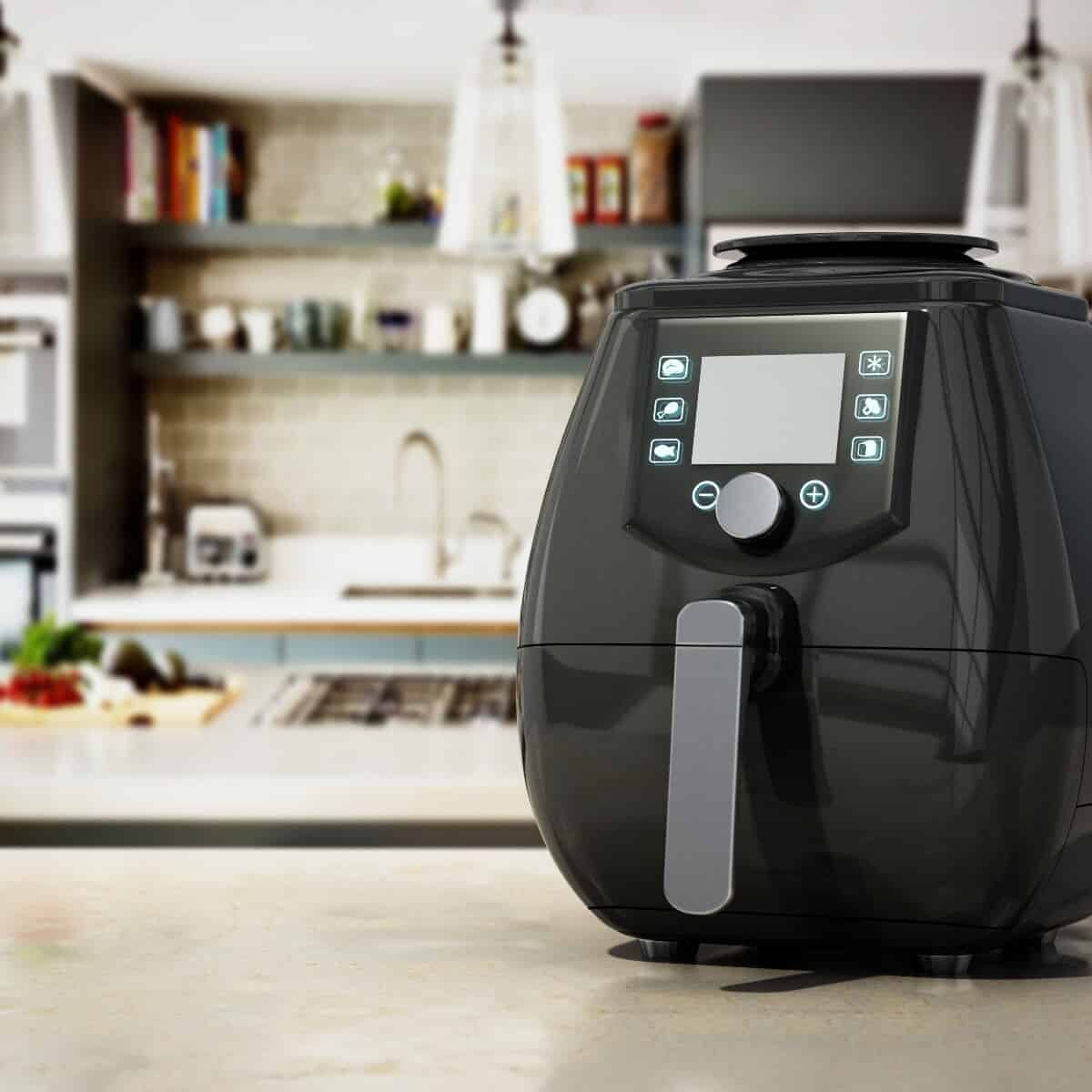
Air fryers and microwaves are two appliances that make cooking more convenient, and while the differences between them may seem subtle, they cook food quite differently.
One of the main differences between an air fryer and a microwave oven is the cooking method utilized to cook, heat, or reheat food.
Many wonder if one is better than the other, but the truth is both appliances are a welcomed addition to any kitchen. They're both useful culinary tools designed for different jobs.
So, what exactly is the difference between an air fryer and a microwave oven?
Jump to:
Key Differences Between Air Fryers and Microwave Ovens
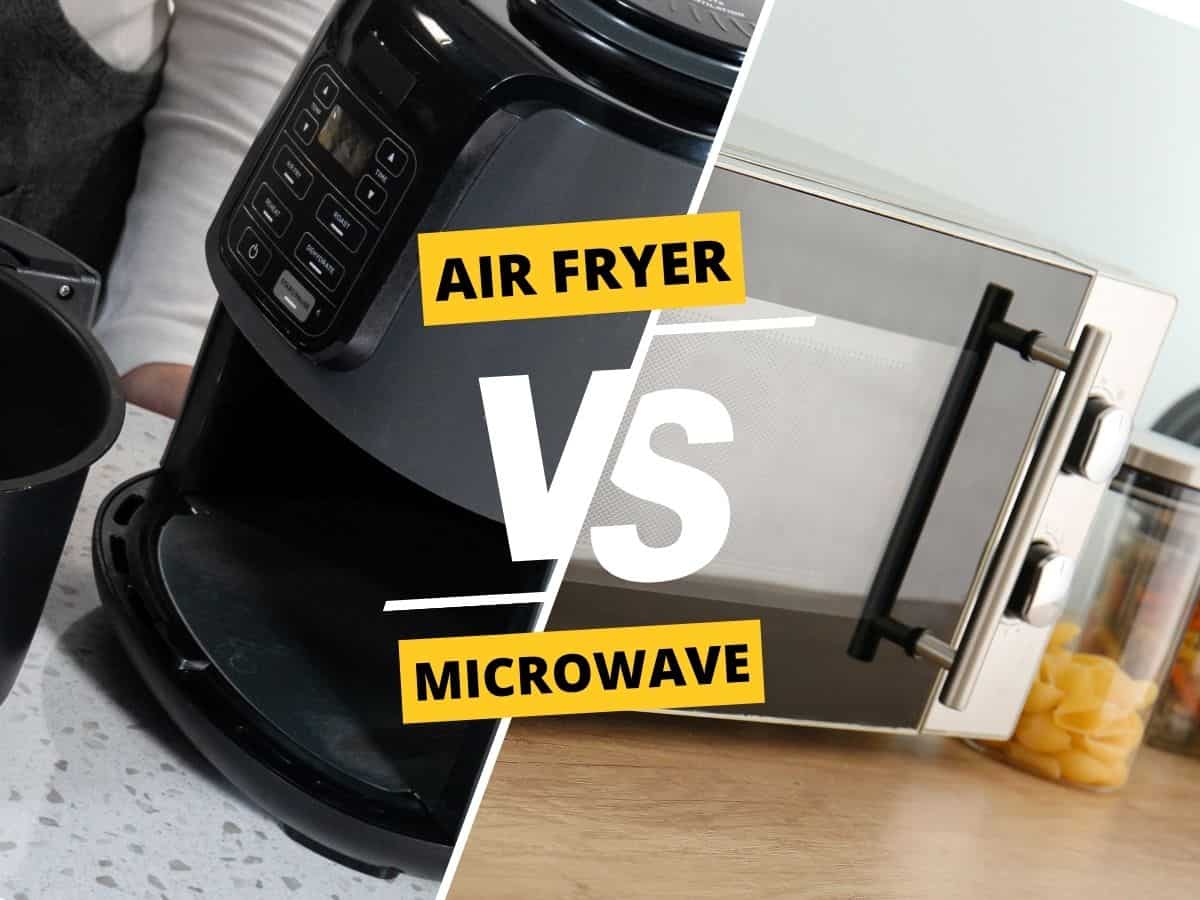
Both air fryers and microwaves are helpful kitchen appliances, but they heat and cook food differently from one another.
Since these two kitchen appliances have their own unique advantages and disadvantages, having both adds a bit of versatility to your kitchen.
Let's review some of the key differences.
Air Fryer vs Microwave Cooking Methods
Microwaves are quick, convenient, and energy-efficient. They use electromagnetic radiation, sometimes called microwave radiation, to heat or cook food by way of electrically charged particles.
These particles interact with water molecules within your food, thereby increasing the level of kinetic energy that produces heat to cook your food.
Unlike microwaves, air fryers cook food by way of convection. They typically feature a heating element with a fan that blows hot air throughout the chamber to cook food evenly, giving you crispy food to enjoy without saturating your food in oil.
Air fryers pride themselves on the ability to provide a deep fry taste without all the excessive oil and grease.
Air Fryer vs Microwave Cooking Times
By far, microwaves have a much shorter cooking time than air fryers. Speed is definitely a major selling feature of the microwave.
They also come in a variety of powers and sizes, giving you plenty of options to choose from. Of course, more watts mean faster speeds.
Generally speaking, a microwave oven can cook food in just a few short minutes, whereas an air fryer averages just under half an hour.
The microwave is indisputably the quickest method for reheating leftovers.
Air Fryer vs Microwave Energy Consumption
When it comes to air fryer vs microwave energy consumption, it's a bit misleading.
The air fryer actually uses less energy than the microwave, but the microwave cooks food in a fraction of the time. Because of the shorter cooking times, the microwave actually ends up using less energy.
For example, an air fryer uses 0.3 kWh of energy for twenty minutes compared to the .95 kWh that a microwave uses. However, what takes the air fryer twenty minutes to accomplish, the microwave can complete in just a few short minutes.
So, the microwave will actually use much less energy on the sole premise that it operates for much shorter time periods. Unfortunately, the air fryer's energy consumption isn't quite as efficient as microwaves.
Air Fryer vs Microwave Size and Space
Microwaves are typically much larger than most air fryers, although there are some large-capacity air fryers on the market. The larger size means you can cook more food at once, but not all foods cook well in the microwave, which is why the air fryer is so popular.
In addition, many microwaves offer an over-the-range option that can save you lots of counter space, which can be an added bonus for smaller kitchens.
Microwave vs Air Fryer: Which One Is Safer?
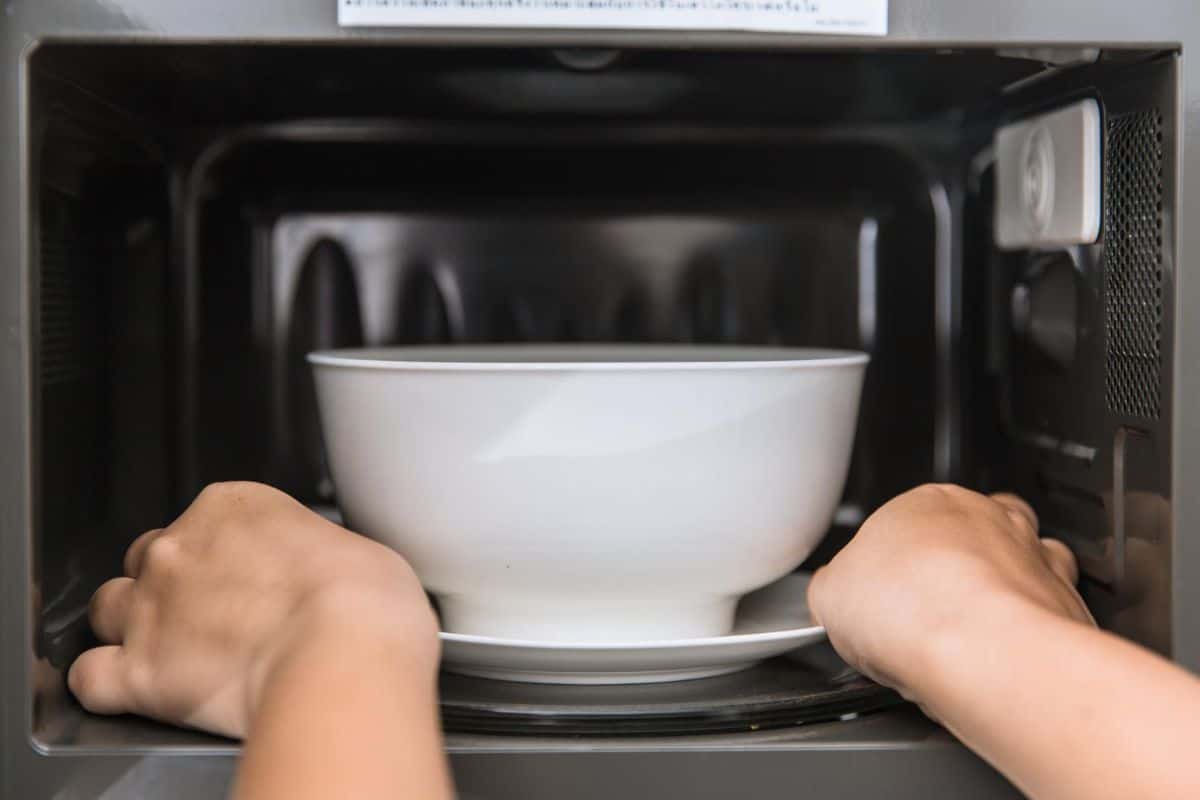
It's worth mentioning that there's a bit of a microwave debate regarding its safety.
For the health conscious, there's a question of whether or not the electromagnetic radiation of the microwave is hazardous to one's health. Although the World Health Organization denies this claim, many dislike using microwaves secondary to their fears of radiation.
Moreover, there is evidence to suggest that microwaved food depletes 97% of your food's nutrients. Consuming foods that lack any substantial nutrients only results in malnourishment, which can be a serious problem.
There are also additional concerns that the plastics used to reheat food in your microwave can actually leach harmful chemicals into your food. Many view air frying as a healthier alternative to the radiation and leached plastics associated with your typical microwave.
Air Fryer vs Microwave: Which One Is Better?
Choosing between a microwave vs air fryer doesn't have to be a one-or-the-other scenario. The truth is both the microwave oven and the air fryer have their place.
Different foods call for different cooking methods, so it really depends on what you hope to accomplish. One food item is better suited for the microwave, while another works better in the air fryer.
Air fryers are the better choice when you want to cook foods with a deep fry taste or for frozen fried foods that you want to make crispy. Alternatively, microwaves work better for food items that are saucy or soupy or when you're in a hurry.
Here's a quick list of what food works better in each appliance.
Microwave for Boiling Water

Speed is your microwave's primary attribute that makes it desirable to the common household. No appliance is faster than the microwave when it comes to heating.
Microwaves are great for things like heating hot water or other hot liquids like coffee and tea. The average microwave can boil water in as little as three minutes.
Whereas an air fryer can't boil water at all. So, when it comes to heating and reheating liquids, the microwave is your best bet.
Air Fryer for Frozen Crispy Foods
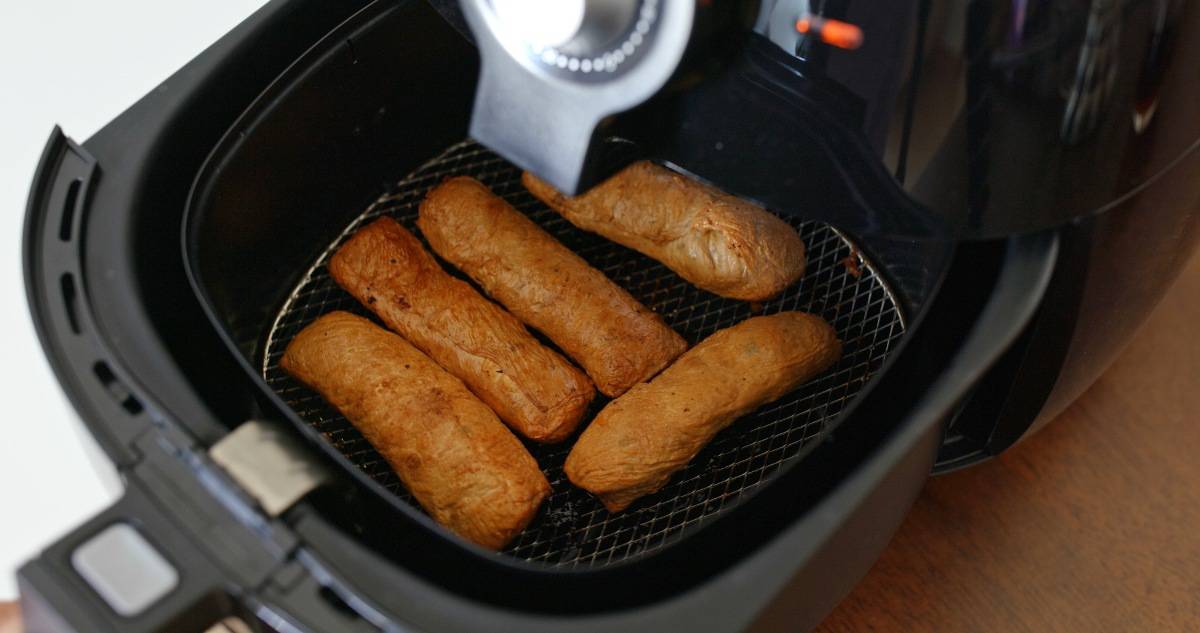
The air fryer's popularity comes with its ability to provide a deep fryer taste without all of the unhealthy side effects of deep-fat frying. You get delicious, crispy food without all the yucky grease.
Air fryers work best for foods that sport a crispy texture. From chicken nuggets to pizza rolls to pot pies, air fryers are the better cooking appliances when you want a crispy exterior crunch.
Microwave for Moist Soupy Foods
Whether it's frozen or canned vegetables or moist foods like soups and casseroles, microwaves tend to be more useful for moist foods.
If you're constantly on the go and have little time for intense food preparation, then the microwave oven is your best friend when it comes to heating already-cooked food quickly.
Air Fryer for Baking
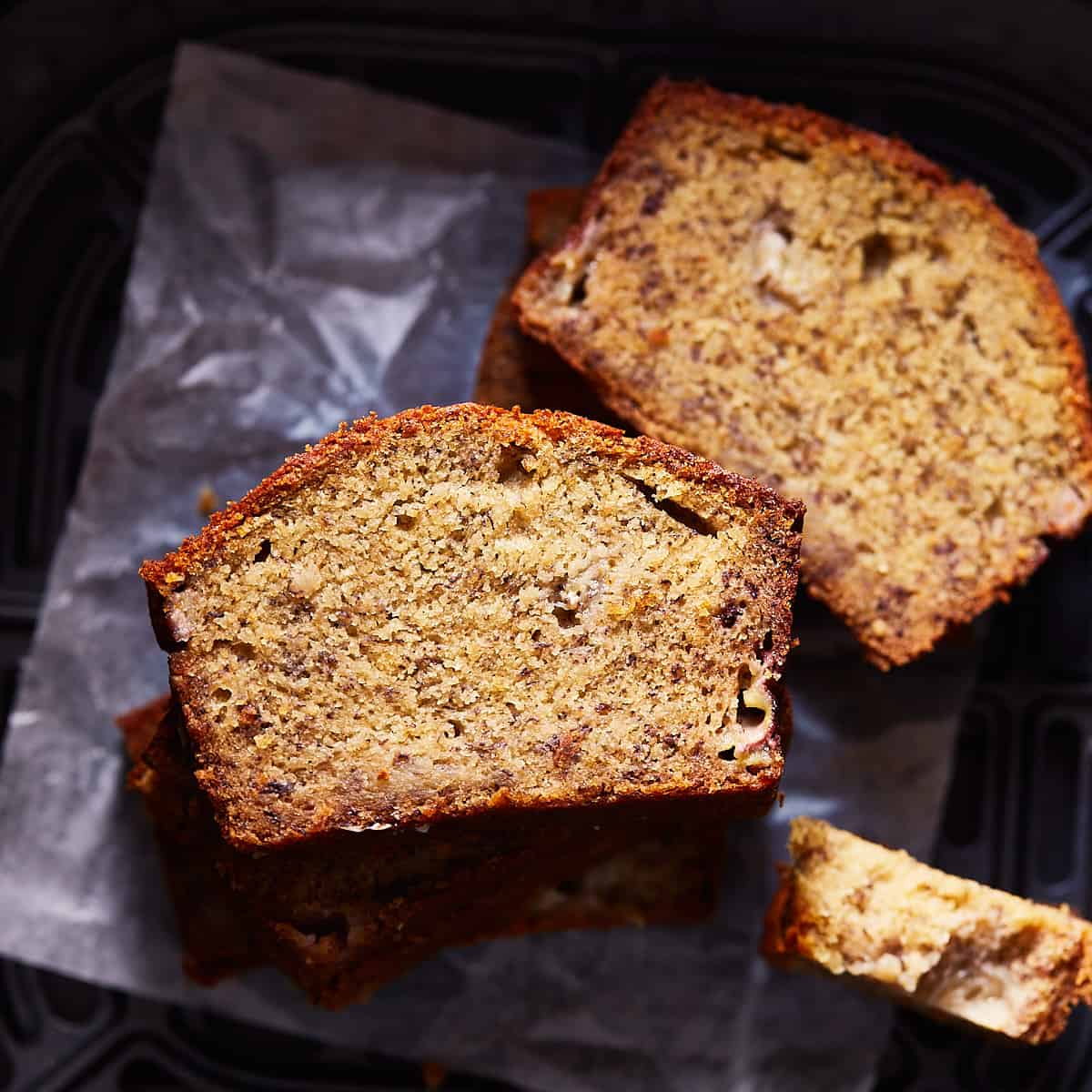
While you can certainly bake cakes and other desserts in your microwave, the air fryer has the advantage because convection cooking is more like your traditional oven.
Your air fryer doesn't have to be just for crisp foods. There are plenty of mouth-watering air fryer recipes for cakes and pastries that will leave you coming back for more.
Additionally, because air fryers are mini convection ovens, they produce the typical texture that we're all accustomed to when it comes to cakes and pastries.
Microwaved cakes tend to become spongy and chewy, making them less desirable than those cooked in your air fryer or traditional oven.
Even for baking casseroles, your air fryer produces a better quality of food. Although air fryers take substantially longer to cook than microwaves, they're quicker than traditional ovens, and the overall texture and quality of the food turn out much better.
Air Fryer for Cooking Meats
Air fryers are by far the better cooking appliance for cooking raw meats like chicken, pork, or beef. Although lots of people do it, many home chefs argue that you shouldn't cook raw meat in a microwave at all.
Not all water molecules are the same size, so they vibrate at different rates, which can heat food unevenly. This can leave undercooked portions throughout your meat where harmful bacteria can thrive.
Advantages of a Microwave
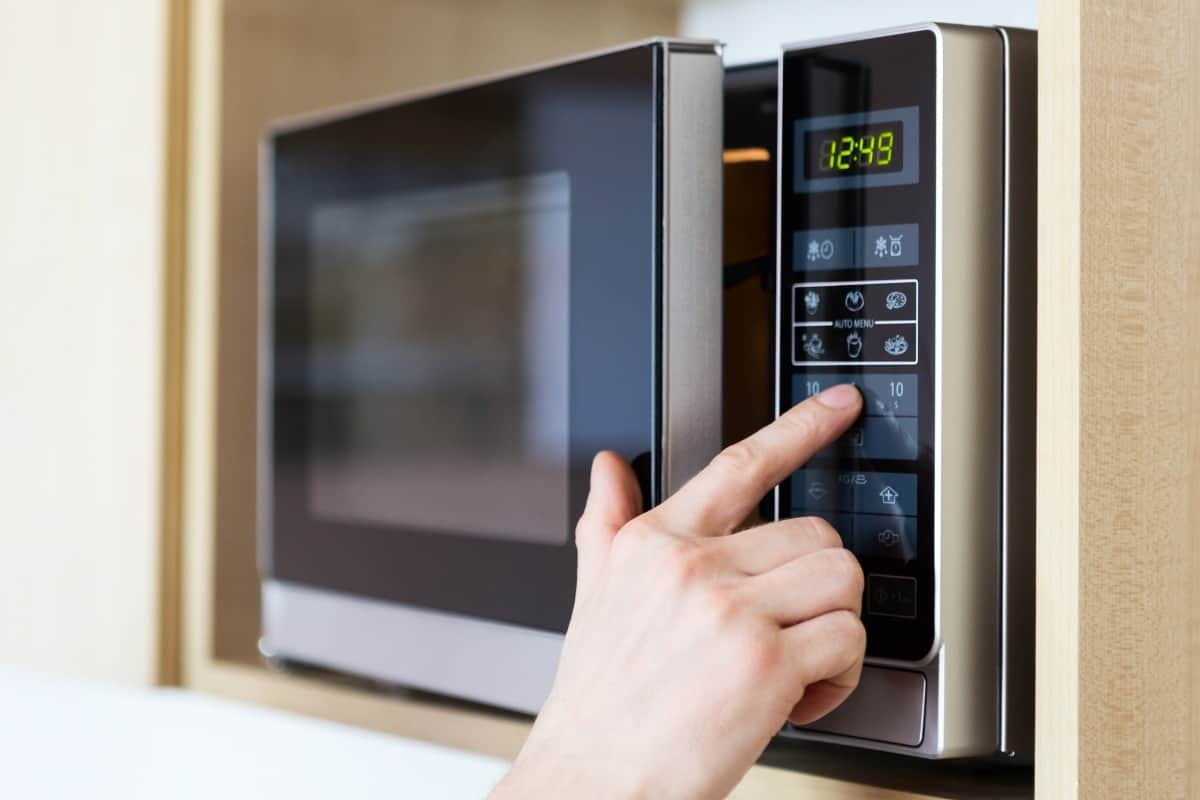
1. They're one of the fastest kitchen appliances on the market.
It cooks or reheats food in a fraction of the time that it takes to air fry food, which makes microwaves an excellent option for frozen food like vegetables or microwavable meals.
When it comes to cooking foods quickly, the microwave makes a handy go-to appliance that's left uncontended.
2. A microwave is more energy efficient than an air fryer.
While the air fryer is more energy-efficient, the microwave takes the lead due to its significantly shorter cooking durations. If your priority is cost savings, using a microwave will result in lower energy expenses compared to using an air fryer.
3. A microwave can quickly boil water.
Try as you may; you can't get water to boil during the cooking process with an air fryer in a reasonable amount of time.
Boiling water in the microwave can significantly reduce the cooking time of lunch box favorites like ramen noodles and mac & cheese bowls.
4. They won't heat your kitchen nearly as much.
A microwave hardly puts off any external heat at all. And even though your air fryer doesn't put off as much heat as a conventional oven, it can still raise your kitchen temperatures a few degrees.
5. They take up less counter space.
The over-the-range option for most microwaves makes them great space savers.
6. Microwaves can cook in large quantities.
Compared to the small air fryer baskets, a microwave oven has a much larger cooking capacity than an air fryer.
7. A microwave is easier to clean than an air fryer.
Because the fans in your air fryer are constantly blowing hot air, food particles are constantly being tossed about your air fryer. This means more frequent cleaning. Microwave trays are also dishwasher safe.
Advantages of an Air Fryer
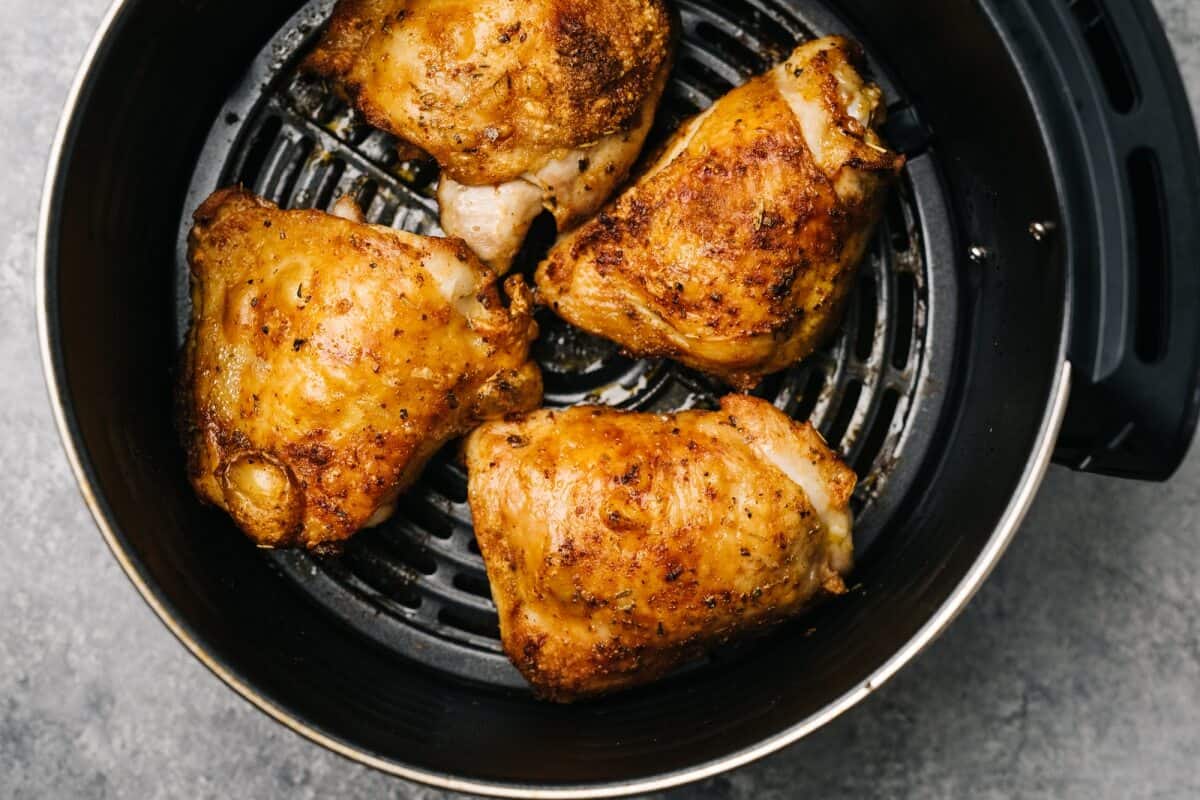
1. An air fryer can reheat food more thoroughly than a microwave.
Food heated in a microwave doesn't stay warm nearly as long as food heated in an air fryer. Although an air fryer isn't as fast as a microwave, it's good at reheating food more thoroughly.
2. Air fryers are the perfect choice for breads.
Breads and rolls heated in a microwave get really chewy and harden up over time, making them nearly impossible to bite through. Other foods, like pizza, turn out limp and soggy, making your food taste less than desirable.
3. Air frying is a healthy option for deep frying.
If crispy foods are what you seek, the air fryer wins hands down. Quicker than a regular oven, the air fryer is one of the best cooking options for frozen deep-fried foods like pizza rolls, taquitos, corn dogs, and french fries.
4. Air fryers are the better option for cooking meats.
Microwaves are also not well suited for cooking raw meat since they don't produce heat in an even distribution. They tend to cook the outside of most foods faster than the inside, which could pose a hazard to your health under certain circumstances.
5. Air fryers usually produce better quality food.
While both a microwave and an air fryer can be used to heat, reheat, or bake food, an air fryer simply cooks food better. Even though the air fryer takes more time, microwaves often make food wet and soggy and not nearly as desirable as foods cooked in the air fryer.
6. Air fryers are better for traditional cooking.
When you don't want to use your conventional oven, the air fryer's convection oven capabilities make it a good substitute for traditional meals, although your portion sizes are limited.
The Final Consensus
At the end of the day, it really comes down to personal preference and how you prefer to cook your food.
Can your air fryer replace your microwave? Certainly, but it doesn't necessarily need to, and there are plenty of occasions when your microwave is the better tool for the job.
It certainly makes sense to have both an air fryer and a microwave in your kitchen if you have the space for both. An air fryer shines as a healthy alternative to deep-fried foods. You can air fry instead, providing the same crispy crunch without all the calories and grease.
Additionally, microwaves provide the convenience of speed that's unparalleled by any other kitchen appliance, plus they're much more energy efficient. These two appliances are both fantastic tools to have in your kitchen arsenal.
If you're interested in comparing other kitchen appliances, try these quick reads for some popular cookware.
Instant Pot vs Air Fryer: A Comparison
Air Fryer Basket vs Tray: A Comparison
Air Fryer vs Deep Fryer: Which Is Right for You?
Air Fryer vs Convection Oven


Leave a Reply